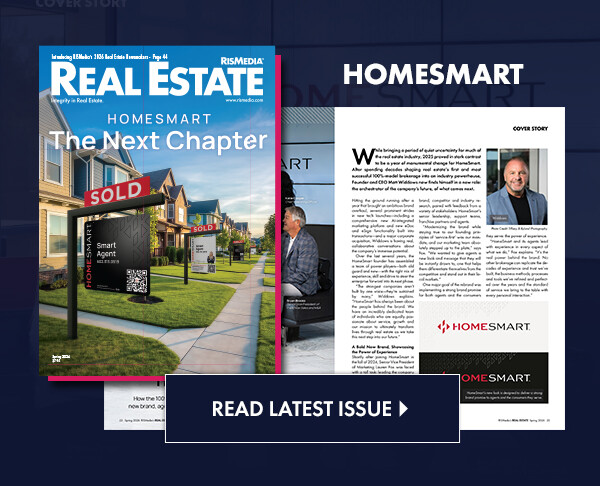By Stacy Downs
RISMEDIA, May 30, 2008-(MCT)-Generation Y is growing up fast. The average age of a first-time home buyer is 26, three years younger than for Gen X or baby-boomer buyers. So what’s up with that?
Sure, favorable rates and terms make buying a house easier for young people these days, but the trend may be most affected by the characteristics of this generation: they are tech-savvy. Generation Y can’t remember life without a computer. This means they are consumers who research everything, including buying houses.
They are confident. Parents told them they were special, challenging their children’s teachers on poor grades and negotiating with their coaches for more playing time. Stores like Baby Gap, channels like Nickelodeon and numerous magazines and catalogs have catered to them their whole lives. So Gen Yers don’t doubt themselves or their decisions, including buying a house.
They don’t believe in paying their dues at work. They want respect at the office now and if they don’t get it, they’ll move on. Similarly, they don’t wait to buy homes.
To find out more about their housing preferences, we spoke to three Gen Yers. Each is a housing expert. None has yet turned 30.
Generation Yers grew up with soccer games, tennis practice, swimming lessons, French class, etc. They’ve carried that over-scheduling tendency into adulthood. How has that affected the type of home they want?
Carrie Vanderford: Growing up, I did dance lessons, cake decorating, French horn, drama, soccer, softball, T-ball, gymnastics, piano. I’m still busy like that, so I’m not a homebody. That said, I want a place that’s simple and free of clutter and that has a connectedness through technology.
Stephen Colin: Because of my busy schedule, I’m not willing to do a long commute. I want to be close to work, close to friends and close to local services.
Ryan Townsend: My generation is looking for low-maintenance homes that are easier to care for. More brick, steel and glass, but also more condo living and less emphasis on land.
In the next 20 years, a big backyard is going to move from asset to liability. Mention “acreage” and a 50-something hears “peaceful place away from the pressures of the city,” while a 20-something hears “isolated maintenance nightmare.”
Gen Yers seem to be more into the environment than previous generations. Does being green affect your home?
Townsend: Green design is a trend the way indoor plumbing is a trend. Seriously, today’s 20-somethings are more globally aware and civic-minded than tuned-out and cynical Generation X. Developers and architects will be forced into environmental awareness purely by market demand.
The buzz topics that will spill from architects’ discussions to homeowners’ discussions will be SIPs (structural insulated panels that go up faster, use less wood and are more energy-efficient than traditional frame building) and LEED (Leadership in Energy and Environmental Design, a certification program through the U.S. Green Building Council). Other topics include rehabilitation of older buildings instead of new construction, an end to the use of vinyl products, geothermal heat, tankless water heaters, solar power, sun angles, embodied energy, reclaimed timber and xeriscaping.
Vanderford: Being green is just a way of life. I’m LEED accredited. It’s so important that I wouldn’t date someone who didn’t recycle. Eco snobbery has become a status symbol for Generation Y.
Colin: Sustainable housing and furniture are important to me. It also affects where I live. I’d like to take public transit or, ideally, walk to work.
Many Gen Yers grew up in McMansions. Is your parents’ big house your dream house?
Colin: No. I want a smaller space so it’s easier to take off and go. A house that’s low-maintenance is good. Generation Y traveled a lot in college and will continue to do so through life. So a big yard isn’t a plus, either.
Townsend: No. I think that seeing so many of our generation’s parents divorce makes us understand that family togetherness is important. So as we start having kids you will see us avoid homes with a living room, family room and finished basement rec room in favor of open-plan homes where the family can share space.
Vanderford: Definitely not. The huge space thing as a status symbol is gone. Well-used efficient space is best. I want a house that reflects who I am and where I’ve been. In big houses, people buy meaningless stuff just to fill them up. Living in a cookie-cutter subdivision with vinyl siding and no trees is not palatable to me.
Gen Y is the generation of MySpace and Facebook. You grew up with reality TV. You seem comfortable putting your private lives out there for everyone to see. How does that translate into a home?
Townsend: It means homes that offer more connection to the neighborhood instead of privacy for their owners: front porches, less space between homes, more density, smaller yards, building up instead of out, condominiums, duplexes, etc.
Gen Y is high-tech with iPods, texting, digital pics, etc. What role will technology play in your home?
Colin: It means a more flexible floor plan that changes as technology changes and as my life changes. Movable wall systems are used in offices, and they’d be good in more homes.
Townsend: Technology means more modernism. My architectural psychology class taught me that people who feel overwhelmed by change, or that the world is “going to hell in a hand basket,” usually choose traditional style. They see the past as being better than the future, and they create whatever link to the past they can.
Generation Y is just the opposite. We want more and more change. My 60-something aunt wants to live in a Monticello-esque house because she makes a link to the noble founding of our country. My generation learned about Jefferson as the guy who had a bunch of illegitimate children with his slaves. We don’t want to live in his house.
Are there examples of local houses that fit in with your idea of a dream home?
Colin: I want to redo a loft space myself someday. There are great ones in the River Market, especially the ones at Fifth and Delaware. I love the high ceilings, huge windows and brick of old buildings. You can’t find those things easily in new construction.
Vanderford: I love the enclave of modern houses at 16th and Belleview that overlook the highway. I love looking at the websites of local architects, specifically El Dorado (www.eldoradoarchitects.com) and BNIM (www.bnim.com ).
In the future, I can see myself living in the midtown neighborhood of Ivanhoe. There’s neighborhood connectedness, and it’s easy to walk to places. And it has some green space. That’s important to me.
Townsend: There are great condos in the city, but unfortunately Generation Y is priced out of the condo market. I think there are future opportunities with the Colonnade apartments in midtown. They have lots of space, and there’s a sense of neighborhood with the big balconies and shared green areas.
So, Who is Generation Y?
Those born between 1978 and 1994. They’re also called Millennials, the Internet Generation, Echo Boomers, Nexters and the Digital Generation. Generation Y follows Generation X, a term coined by fiction writer Douglas Coupland to describe those born after boomers, roughly 1965 to 1978.
Favorable Features for Gen-Y on the Horizon
Demountable Wall Panels: These might be a future feature in Gen-Y homes. The panels, which allow walls to be broken down and moved, work like office cubicles with metal-grid foundations. They allow you to easily change wall material (fabric, glass, etc.) and rewire as technology evolves. This residential system by DIRTT (Doing It Right This Time) of Calgary, Alberta, shown at the International Contemporary Furniture Fair in Chicago, can be purchased through architects and interior designers. One panel, used in a kitchen, allows users to easily rearrange modular cabinetry.
© 2008, The Kansas City Star.
Distributed by McClatchy-Tribune Information Services.










